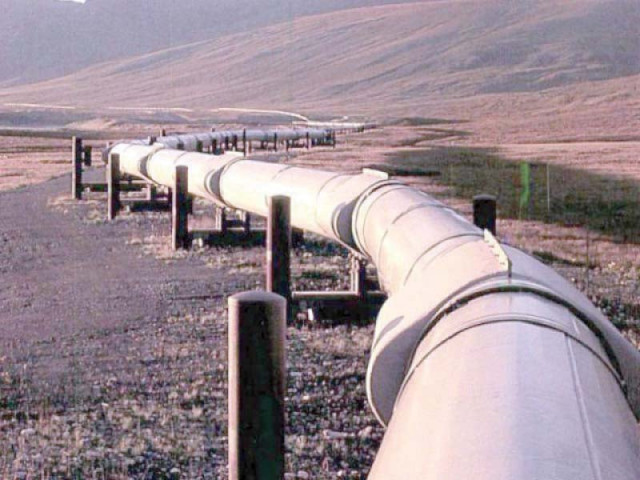Lack of consensus: Subsidised gas supply delayed as dispute erupts
Ministry removes captive power plants from subsidy programme; textile millers protest

Owing to the exclusion of captive power plants, the subsidy requirement has come down to less than Rs23 billion against the initial estimate of Rs63.5 billion, said officials. PHOTO: FILE
In mid-September, the Economic Coordination Committee (ECC) of the cabinet decided to provide gas at subsidised rates in response to a summary prepared by the Petroleum Division. The division had sent the summary to the ECC without broader consultations with other ministries, according to government sources.
The Ministry of Finance, Petroleum Division and industrial sectors have now come up with different interpretations of the ECC’s decision. The Ministry of Finance has excluded captive power plants from the eligibility criteria in addition to reducing the subsidised gas volume from 300 million cubic feet per day (mmcfd) to 185 mmcfd.
This came despite a notification of the Oil and Gas Regulatory Authority (Ogra) last month that included the captive power plants in the subsidy programme. But all that was not discussed at the ECC meeting. Owing to the exclusion of such plants, the subsidy requirement has come down to less than Rs23 billion against the Petroleum Division’s initial estimate of Rs63.5 billion, according to government officials.
The All Pakistan Textile Mills Association (Aptma), which looks after the interest of influential industrialists, has complained to Finance Minister Asad Umar. Aptma has sought the minister’s intervention as Sui Northern Gas Pipelines Limited (SNGPL) has issued new gas bills on the basis of previous tariffs.
The government has announced that it will reduce gas and electricity prices for five major export sectors aimed at facilitating them in enhancing shipments - a key requirement to address Pakistan’s external-sector woes.
In its September 14 meeting, the ECC decided to provide subsidised gas to textile and jute, carpet, leather, sports goods and surgical instrument sectors in Punjab. According to the ECC, the weighted average gas tariff for such consumers will be $6.5 per million British thermal units (mmbtu).
Subsequently, the Petroleum Division sent another summary to the ECC in mid-October, highlighting the requirement of gas and re-gasified liquefied natural gas (RLNG) for the industries.
In its October 15 meeting, the ECC also directed the Petroleum Division and Ogra to consult with the finance ministry for the release of subsidy. The Finance Division issued an order in light of consultations with the Petroleum Division, Ogra and SNGPL, which is now being disputed by the industrialists.
The ECC allowed the provision of imported LNG to five Punjab-based industries at half the existing prices despite having no budgetary allocation.
Aptma has objected to the office memorandum that the finance ministry issued on Friday. According to the memorandum, the cabinet’s decision has come into effect from October 16, instead of September 27 when the federal cabinet approved the new gas rate.
Captive power plants, being run by the textile industry, have been excluded and the industry has been billed at the rate of $12.5389 per mmbtu instead of the approved rate of $6.5.
The ministry was of the view that due to sustained power supply, subsidised gas was not required for power generation by the textile sector. Subsidised gas would be provided to the zero-rated industry for the production process only, it said, adding in light of that, the ministry had restricted the subsidy to 185 mmcfd instead of 300 mmcfd.
Aptma was of the view that the gas requirement for goods processing was only 45 mmcfd and the rest was being consumed by the captive power plants. It argued that the second problem was that many industrial units had only one gas connection from where they consumed gas for both captive plants and goods processing.
There was also disagreement over the mode of subsidy payment. According to the finance ministry’s memorandum, SNGPL will issue invoices to the zero-rated industry at notified prices and upon receipt of subsidy from the Finance Division on a monthly basis, the subsequent invoices to the industry will be adjusted according to the weighted average price of $6.5 per mmbtu.
Accordingly, SNGPL will submit signed gas consumption bills, which will be verified by the petroleum secretary before the release of subsidy.
Published in The Express Tribune, November 6th, 2018.
Like Business on Facebook, follow @TribuneBiz on Twitter to stay informed and join in the conversation.



















COMMENTS
Comments are moderated and generally will be posted if they are on-topic and not abusive.
For more information, please see our Comments FAQ